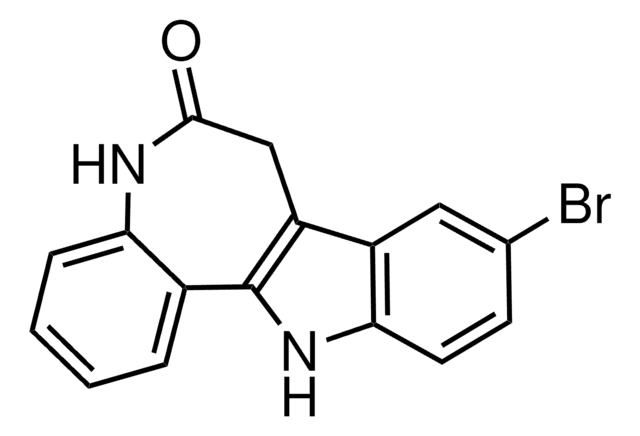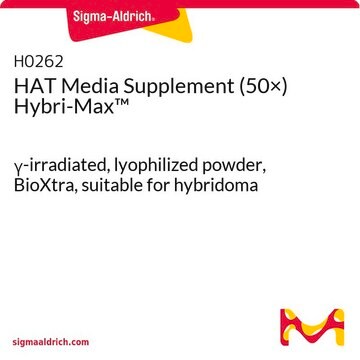SML3706
BT2
≥98% (HPLC)
Synonym(s):
3,6-Dichloro-1-benzothiophene-2-carboxylic acid, 3,6-Dichlorobenzo[b]thiophene-2-carboxylic acid, 3,6-Dichlorobenzothiophene-2-carboxylic acid
Sign Into View Organizational & Contract Pricing
All Photos(1)
About This Item
Empirical Formula (Hill Notation):
C9H4Cl2O2S
CAS Number:
Molecular Weight:
247.10
MDL number:
UNSPSC Code:
12352200
NACRES:
NA.77
Recommended Products
Quality Level
Assay
≥98% (HPLC)
form
powder
color
white to beige
solubility
DMSO: 2 mg/mL, clear
storage temp.
2-8°C
Biochem/physiol Actions
BT2 is an orally active, allosteric mitochondrial branched-chain α-ketoacid dehydrogenase (BCKD) kinase (BCKDK or BDK) inhibitor (IC50 = 3.19 μM) that induces BDK dissociation from the BCKD complex (BCKDC) with superior pharmacokinetics and metabolic stability than (S)-CPP. BT2 increases cellular BCKDC activity in cultures (40 μM; MEF & murine hepatocytes) and induces BDK degradation in mice & rats in vivo, effectively upregulating tissue BCKDC activity and downregulating plasma branched-chain amino acid (BCAA) level. Typical dosing range: 40-250 μM (in cultures or cell-free), 20-40 mg/kg (ip. or po. in vivo; mice & rats) or 200 mg/kg diet.
Storage Class Code
11 - Combustible Solids
WGK
WGK 3
Flash Point(F)
Not applicable
Flash Point(C)
Not applicable
Certificates of Analysis (COA)
Search for Certificates of Analysis (COA) by entering the products Lot/Batch Number. Lot and Batch Numbers can be found on a product’s label following the words ‘Lot’ or ‘Batch’.
Already Own This Product?
Find documentation for the products that you have recently purchased in the Document Library.
Mengping Chen et al.
Journal of the American Heart Association, 8(11), e011625-e011625 (2019-08-23)
Background Branched-chain amino acid (BCAA) catabolic defect is an emerging metabolic hallmark in failing hearts in human and animal models. The therapeutic impact of targeting BCAA catabolic flux under pathological conditions remains understudied. Methods and Results BT2 (3,6-dichlorobenzo[b]thiophene-2-carboxylic acid), a
Golam M Uddin et al.
Cardiovascular diabetology, 18(1), 86-86 (2019-07-07)
Branched chain amino acids (BCAA) can impair insulin signaling, and cardiac insulin resistance can occur in the failing heart. We, therefore, determined if cardiac BCAA accumulation occurs in patients with dilated cardiomyopathy (DCM), due to an impaired catabolism of BCAA
Danielle Murashige et al.
Cell metabolism, 34(11), 1749-1764 (2022-10-13)
Pharmacologic activation of branched-chain amino acid (BCAA) catabolism is protective in models of heart failure (HF). How protection occurs remains unclear, although a causative block in cardiac BCAA oxidation is widely assumed. Here, we use in vivo isotope infusions to show
Our team of scientists has experience in all areas of research including Life Science, Material Science, Chemical Synthesis, Chromatography, Analytical and many others.
Contact Technical Service








